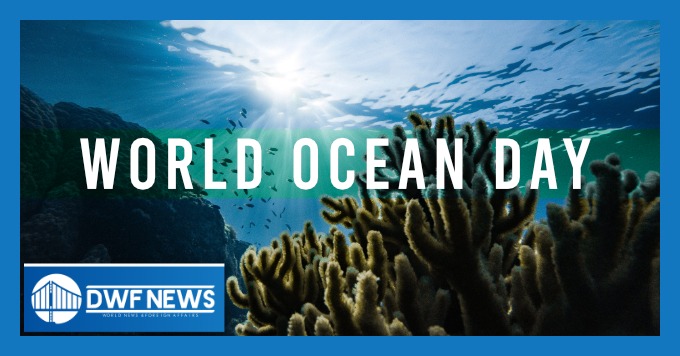World Citizens Call for Renewed Efforts to Resolve Asian Maritime Delimitations Dispute
Written By René Wadlow
President | Association of World Citizens
July 14, 2020
Article originally published by Transcend
8 June has been designated by the United Nations General Assembly as the International Day of the Oceans to highlight the important role that the United Nations has played in creating the Law of the Sea Convention.
Nevertheless there are maritime delimitation disputes that are currently dangerous and require good-faith negotiations to prevent increased tensions. World Citizens have played an important role in the Law of the Sea Conference (UNCLOS) negotiations and in the creation of the International Seabed Authority and its Tribunal on maritime deliberation issues.(1)
There are currently two major geographic areas in which there are maritime delimitation issues: the Arctic and the China Seas. The China Seas tensions are the most politically sensitive. Territorial sea disputes can be heated up by governments and cooled off at will when other political issues require attention elsewhere. Currently, we are in a “heating up” stage between China and Japan, and to a lesser degree between China and Vietnam, China and Taiwan, and China and the Philippines. The China-U.S.A. tensions also color the South China Sea issues.
There are both economic and geo-strategic aspects to these tensions, and both need to be addressed if good faith negotiations are to lead to cooperation for the benefit of all.(2)
Progress in maritime geology and predictions of metal shortages in the decade ahead have made seabed mining a concern of governments such as China, Japan and South Korea. Minerals such as copper, gold and many other industrial minerals as well as oil-natural gas are thought to be available through sea mining in this Pacific area.
The strategic-geo-political aspects are less clear but they focus on the Chinese Navy creating permanent islands around what had been only rock formations of land that was visible only part of the year. There is a drive for influence in the area among China, Japan, the USA, and to a lesser extent, India. The drive has no doubt to do with the vision each State has of its leadership role, its growing or declining position, its ability to limit the influence and access of other States, and its “core interests.” Such political speculations are “immaterial” but can easily lead to mistaken calculations and consequent actions.
Factions in both Japan and China are playing a “nationalist card” concerning the maritime delimitations disputes, no doubt for reasons which go beyond the specific aspects of the disputes. Although the Chinese “nationalist” focus is directed toward Japan, there is a vision among some Chinese that the USA is the cause of the continuing problems with Taiwan and Japan.
Therefore, it is important that “non-nationalist” voices be heard, stressing cooperation for mutual benefit. The Association of World Citizens is among such voices, stressing that the settlement of maritime delimitation disputes through adjudication by the World Court is the ideal approach. For World Citizens, the quality of the Law of the Sea is of special significance. The greater part of the oceans is considered res communis, a global common beyond national ownership. Furthermore, the physical nature of the oceans suggests world rather than national solutions to the increasing need for management of marine resources and the marine environment.
Although most maritime delimitations are, in fact, achieved without recourse to adjudication and are settled by bi-lateral negotiations, submitting a dispute to the World Court can better ensure that the results of the delimitation process conform to the rules of international law.
The International Day of the Oceans can serve as the start of a strong mobilization of voices calling for good-faith negotiations and for a vision of cooperation among the States of the China Seas.
NOTES:
1) See the writings of the world citizen Louis B. Sohn, in particular his course at the Hague Court legal summer school “Settlement of Disputes Relating to the Interpretation and Application of Treaties” Recueil des cours Vol.150. 1976 II, pp. 205-294. For a useful approach to the delimitations issues see A.O. Adede The System for Settlement of Disputes under the UNCLOS (Martinus Nijhoff Publishers, 1987)
2) Delimitation disputes are not new but reappear when politically useful for some reason. For a good overview of the history with maps of the disputed areas see Douglas Johnston and Mark Valencia Pacific Ocean Boundary Problems (Martinus Nijhoff Publishers, 1991).
What is World Federalism?
World Federal Government (WFG)
Original Publisher
TranscendRené Wadlow is a member of the TRANSCEND Network for Peace Development Environment. He is President of the Association of World Citizens, an international peace organization with consultative status with ECOSOC, the United Nations organ facilitating international cooperation and problem-solving in economic and social issues, and editor of Transnational Perspectives.
Related Articles
LIST of Articles DWF NEWS 5/28/25
Children, Civilians Burned Alive as Israeli Warplanes Target School, Home in Gaza Palestine Chronicle staff 'Can't Remain Silent' on Jewish Atrocities: Malaysian Foreign Minister Says at ASEAN Foreign Ministers' Meeting Aamir Latif Anadolu Agency ...
LIST of Articles for DWF NEWS 5/14/25
Should "Israel" Be Declared A Terrorist Entity? Kevin Barrett Israel Is Spiraling Ori Goldberg The Nation 'Our Position on Palestine Is Not Fringe' Janine Jackson FAIR Latecomers starting to join PEOPLE OF CONSCIENCE Multiple Western Press Outlets Have...
List of Articles for DWF NEWS 4/30/25
PEOPLE OF CONSCIENCE absent among WASP & Zionist elites Imperial Cowardice: Gaza & the Moral Collapse of the American Elite Mohamed El Mokhtar The Palestine Chronicle Where is the Arab Street? Asad Abukhalil Consortium News Gaza exposes the rot of...
Solving Global Problems
We can work together to make the world better

